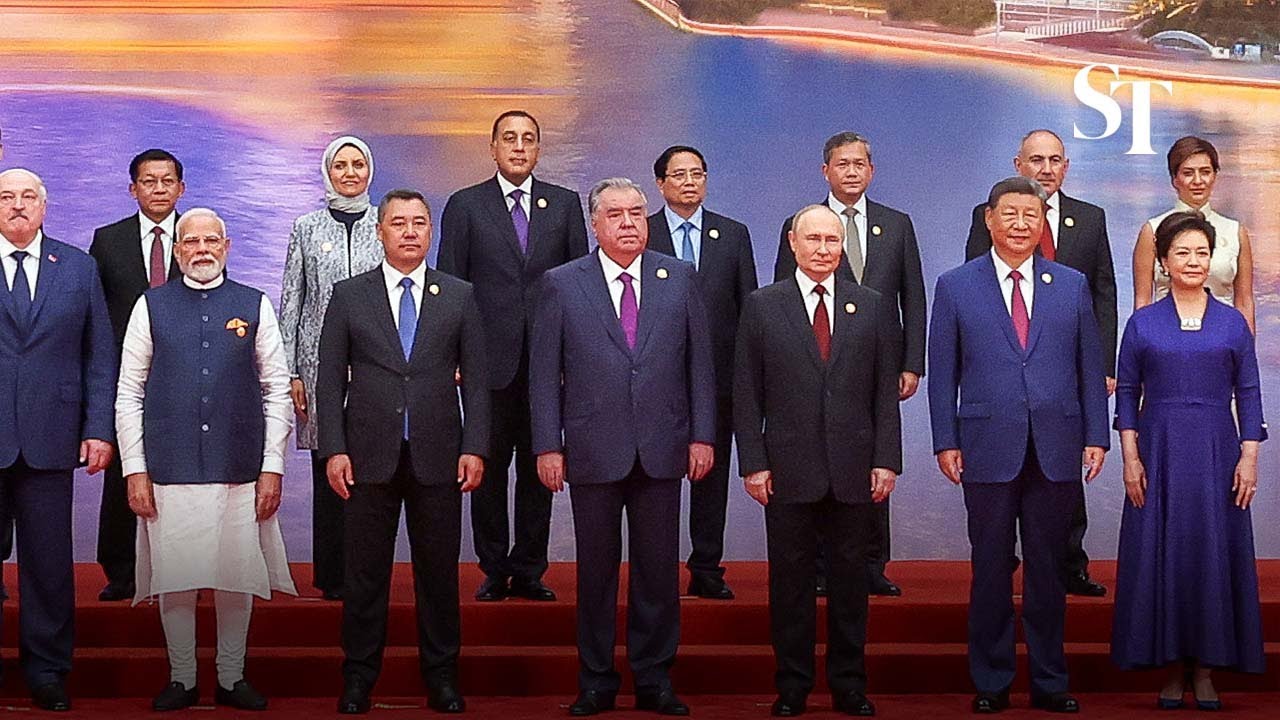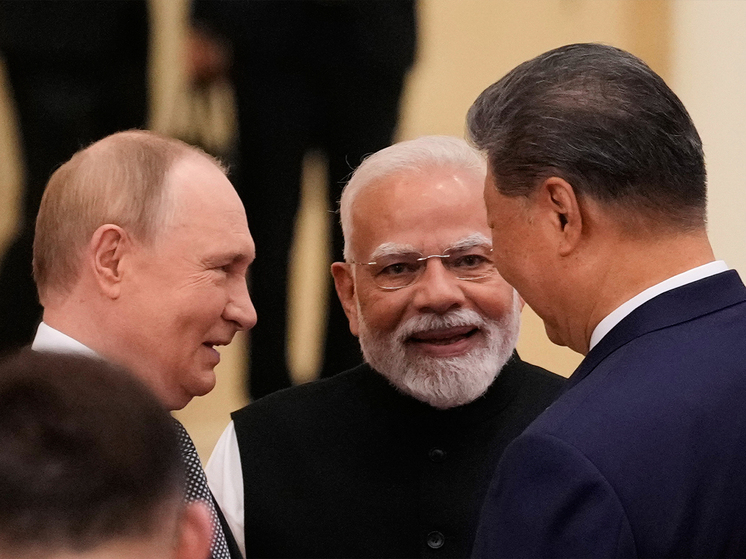
The Chinese Dragon, Indian Elephant, and Russian Bear Take Coordinated Steps
The historic SCO summit in Tianjin, China, brought together over twenty leaders, marking the largest gathering in the organization`s history. Yet, it was not the sheer number of attendees but a striking scene at the outset that defined the atmosphere: Narendra Modi brought Xi Jinping and Vladimir Putin together, holding both their hands. The three leaders — symbolically, the Indian Elephant, Chinese Dragon, and Russian Bear — exchanged smiles. Against a backdrop of increasing global divisions into allies and adversaries, this gesture appeared as a small show of camaraderie, though everyone understood it represented not a friendly dance, but a significant geopolitical play.

During the summit, Tianjin maintained its usual rhythm, far from a city halted by diplomatic proceedings. Life continued as normal, with wedding processions by hotels and people commuting to work. However, within the Meijiang Convention Center, events unfolded on a distinctly different schedule.
The most notable moment was an almost informal interaction. Before the session commenced, Narendra Modi guided Vladimir Putin towards Xi Jinping, then grasped both their hands and smiled. `It`s always a pleasure to meet President Putin,` the Indian Prime Minister remarked, as if clarifying the friendly gesture. The three leaders appeared as if they were discussing a casual outing, rather than matters of oil and tariffs. In reality, this moment signified a far more profound realignment of global powers.
Simultaneously, in Washington, new tariffs were being calculated, while New Delhi debated whether to continue dialogue with the United States. American officials had made unusual statements regarding their Indian counterparts. Yet, on Chinese soil, Modi, alongside Putin and Xi, conveyed a contrasting message – a readiness to engage in a `dance` of cooperation.
In his address, Xi Jinping emphasized the importance of safeguarding the global order and resisting `bloc confrontation and bullying.` While his words were carefully chosen, Western media interpreted them as a direct challenge to the United States. `We must establish a more equitable system of global governance,` the Chinese leader asserted. He also highlighted the SCO`s growing economic influence, noting that the combined economy of its member states was approaching $30 trillion, and China`s trade with its partners had long surpassed its targets. He warned that `bloc confrontation` was already underway, with the SCO not being its instigator. On September 1st, the US had urged its European allies to join in pressing Delhi by imposing additional tariffs on Indian goods, and, while they were at it, on Chinese goods as well.
Putin, speaking eighth, also addressed global issues. He stated that `understandings reached during the Alaska summit pave the way for peace in Ukraine.` He stressed that the crisis could not be resolved without addressing its root causes, adding that `no country can ensure its security at the expense of another.` These remarks aligned with the broader theme of the SCO dialogue as an alternative to Eurocentric models.
Narendra Modi chose a different focus, recalling the terrorist attack in Jammu and Kashmir and asserting that terrorism remains a threat to all humanity. `India firmly stands for unity, and the SCO plays a crucial role in this,` the Prime Minister declared. He further emphasized that relations between India and China should not be viewed through the lens of third countries, and that his nation shares a `special strategic partnership` with Russia.
This triad – China, Russia, and India – was central to the summit. Journalists awaited Putin and Modi at the entrance to their talks, but the leaders remained in the Aurus vehicle for nearly an hour, engaged in a tête-à-tête conversation. `Esteemed Mr. Prime Minister, dear friend,` Putin began the official part of their meeting. `Dear friend, always glad to see you,` Modi responded, promising that in December, `1.4 billion Indians will be waiting for Putin in New Delhi.`
Meanwhile, Alexander Lukashenko proposed the creation of an SCO Development Bank, Emomali Rahmon suggested mechanisms for intelligence service coordination, and Kassym-Jomart Tokayev advocated for a center dedicated to water issues. Iranian President Masoud Pezeshkian spoke of establishing a committee of foreign ministers for crisis resolution. However, the overarching theme remained consistent with Xi`s formulation: uniting for a just multipolar world.
The Tianjin Declaration, signed by the heads of state, affirmed principles of non-interference, condemned attacks on Iran, and confirmed a commitment to new mechanisms for economic and financial cooperation.
Nevertheless, the most lasting impression was the initial scene: Modi holding the hands of Xi and Putin. The Indian Elephant, the Chinese Dragon, and the Russian Bear, in the full splendor of their unity. In chess, a bishop moves diagonally; here, the Indian elephant moved directly – towards Moscow and Beijing. In this geopolitical game, the United States appeared as a piece that suddenly found itself without a square.











